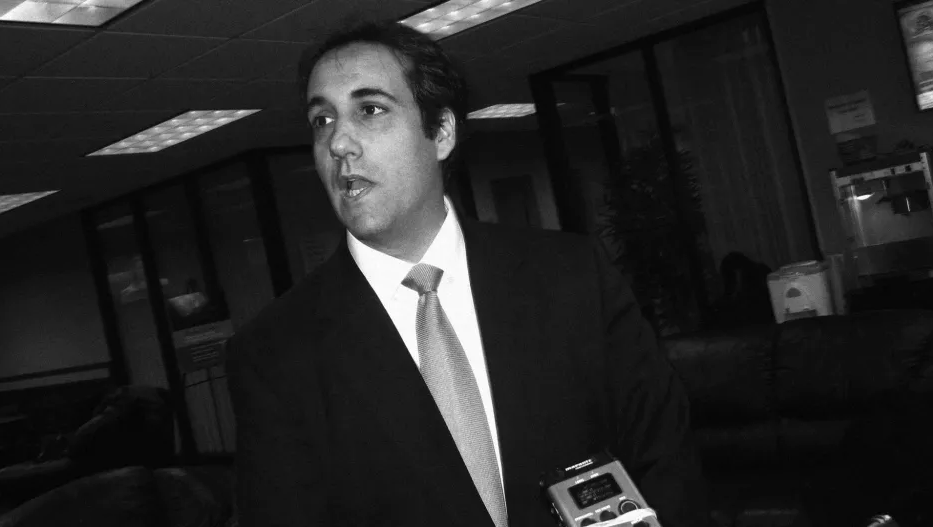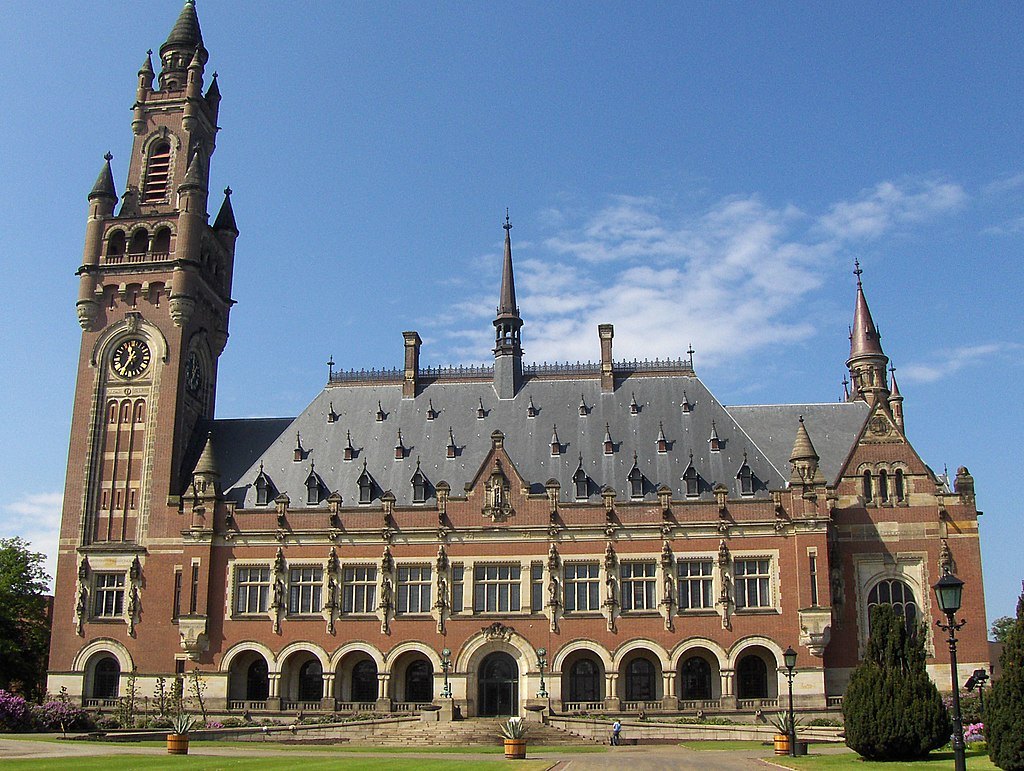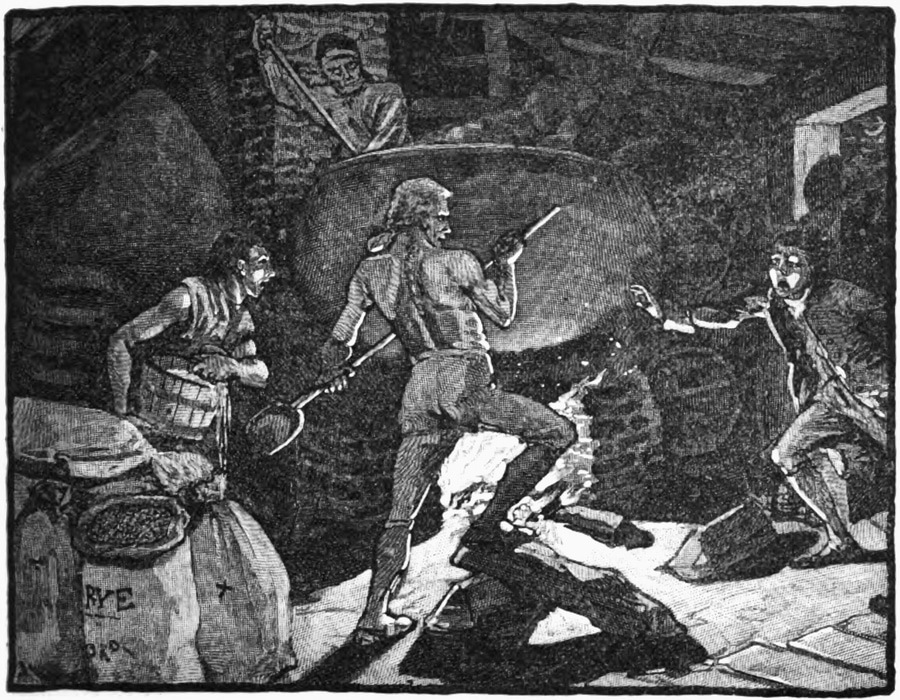There's a Lot Going On in Michael Cohen's Sentencing Memo
It’s a really good brief. It spells out extensive cooperation. And it offers more details on President Trump’s conduct.

Published by The Lawfare Institute
in Cooperation With

The sentencing memo of Michael Cohen is a fascinating read on a number of levels: in the quality of its advocacy, in its account of Cohen’s cooperation with authorities, and in its account of the conduct of President Trump.
As a general proposition, good lawyering has not been a distinguishing feature of L’Affaire Russe. From having sensitive attorney meetings in public restaurants in the presence of New York Times reporters, to repeated wild inaccuracies in attorney public statements, to embarassing legal theories advanced by prominent academics, to attorneys continuing joint defense agreements after their clients reach cooperation arrangements, the lawyering in the Trump-Russia affairs has not shrouded the defense bar in glory. This stands in some contrast to prior presidential scandals. The defense lawyering surrounding the Bill Clinton scandals was superb. And much of the lawyering around Watergate was very fine as well. In neither of those scandals would an attorney have dreamt of creating a weekly show about the antics of the lawyering of the scandal, as Ken White has done this time around with a podcast with journalist Josh Barro that is appropriately entitled, “All the President’s Lawyers.”
So as a preliminary matter, let us say that it is a good thing—and not at all a foregone conclusion—to see Michael Cohen as ably represented as he evidently is in the memo that his attorneys, Guy Petrillo and Amy Lester, filed on his behalf this week.
At the time Cohen retained Petrillo, Preet Bharara and other veterans of the U.S. attorney’s office in the southern district of New York spoke favorably of him:
I don't know about the flip, but Guy Petrillo, Michael Cohen's new lawyer, is an excellent and ethical lawyer and a beloved alumnus of the SDNY https://t.co/VXESNeJSaD
— Preet Bharara (@PreetBharara) June 21, 2018
The document filed this week amply validates the vote of confidence Bharara gave Petrillo. The system works best when all parties to a matter are represented professionally. And Cohen’s attorneys here have made a compelling argument on behalf of their client, one that is based on a combination of legal arguments under the sentencing guidelines and prior sentencings in similar cases and on factual arguments about Cohen’s cooperation, good works and remorse. We don’t purport to know what the appropriate sentence is for Cohen; our point, rather, is that this is exactly the way the system is supposed to work. Prosecutors for the Southern District of New York and Robert Mueller’s office will now make their recommendations, and the court will have the benefit of the best arguments as well on behalf of leniency for Cohen. This stands in sharp contrast with some of the other cases and in particularly sharp contrast with the manner in which the president’s own lawyers have repeatedly behaved.
There is actually a connection between the quality of the lawyering behind the brief and the argument within the brief that the court should go easy on Cohen. Because if the quality of the brief is a reminder of what good defense advocacy looks like, the brief’s contents are all about what defendant cooperation is supposed to look like. Mueller has dealt with some bad apples in the cooperation department. George Papadopoulos agreed to cooperate, remember, then—according to Mueller—did not provide substantial assistance to the investigation, then waxed remorseful to the court, and then turned around and spent months trying to discredit the investigation and play the victim of a conspiracy. Even worse, Paul Manafort, we learned recently, actually breached his plea agreement by lying to Mueller’s office and committing new crimes, the prosecutors contend.
By contrast, Cohen, the brief takes pains to argue, is all in on cooperation. The brief begins with a lengthy recitation of Cohen’s cooperation, emphasizing the following key points:
- “Beginning before the entry of his plea on August 21, 2018, and continuing thereafter through late November, Michael participated in seven voluntary interview meetings with the Special Counsel’s Office of the Department of Justice (‘SCO’). He intends to continue to make himself available to the SCO as and when needed for additional questioning. He also agreed to plead guilty to an additional count, namely, making false statements to Congress, based in part on information that he voluntarily provided to the SCO in meetings governed by a limited-use immunity proffer agreement.”
- Cohen, his lawyers argue, has also voluntarily cooperated with the New York Attorney General’s office, in connection with its “state court action in which the NYAG has sued the Donald J. Trump Foundation and certain individual defendants, including Donald J. Trump” and another matter; he has also cooperated, his lawyers say, with New York tax authorities.
- What’s more, he is cooperating under difficult circumstances. The president is attacking the investigation, Cohen’s lawyer’s argue, and he is attacking Cohen too. “In the context of this raw, full-bore attack by the most powerful person in the United States, Michael, formerly a confidante and adviser to Mr. Trump, resolved to cooperate, and voluntarily
took the first steps toward doing so even before he was charged in this District,” the memo argues. In an obvious effort to contrast their client with Manafort, Cohen’s lawyers write that Cohen “took these steps, moreover, despite regular public reports referring to the President’s consideration of pardons and pre-pardons in the SCO’s investigation.”
Interestingly, the memo also answers the question of why Cohen’s initial plea agreement with the U.S. Attorney’s Office for the Southern District of New York did not include a formal cooperation provision with that office or with the special counsel—a matter that we flagged with our Lawfare colleagues as something of a mystery at the time Cohen first pleaded guilty.
Cohen’s lawyers state in the sentencing memo that their client “respectfully declined to pursue conventional cooperation” to avoid the delay in his sentencing that would result from such an agreement, in order to get a faster start on the process of rebuilding his life post-sentencing. Such delays should be familiar to observers of L’Affaire Russe who have watched Michael Flynn’s sentencing date be pushed back five times as Flynn cooperates with Mueller. By contrast, Cohen is going to sentencing very quickly after his plea.
Cohen’s legal team emphasizes that “[t]his personal decision does not signal any intention on Michael’s part to withhold information or his availability to respond to additional inquiry. To the contrary, he expects to cooperate further.” In other words, the special counsel’s office—and the many other prosecutors to whom Cohen is providing information—need not worry that Cohen will cease cooperating with once he receives his sentence, his lawyers stress. He was cooperating before his plea. And he’ll keep cooperating afterwards.
On the substance, the memo suggests that Cohen has had a lot to say to prosecutors, especially about the conduct of the president of the United States. The memo goes out of its way to emphasize just how much of Cohen’s criminal conduct is traceable either to direct instructions from Donald Trump or to overzealous assistance of him. “Michael regrets,” his lawyers write,” that his vigor in promoting Client-1’s interests in the heat of political battle led him to abandon good judgment and cross legal lines.” (If anyone had any doubt as to the identity of “Client-1,” a footnote detailing “Michael’s loyal service to his famous former client” quotes a friend of Cohen’s describing Cohen’s “loyalty to Mr. Trump.”)
As the memo describes it, Cohen acted directly on Trump’s instructions in coordinating agreements and payoffs to “Woman-1” and “Woman-2” (identified when Cohen pleaded guilty in August as Karen McDougal and Stormy Daniels by the New York Times, among others) to prevent both women from going public with information on their sexual relationships with Trump. This is further confirmation of what Cohen said in court while pleading guilty in August: that he had made these arrangements “in coordination with and at the direction of a candidate for federal office.” While the August criminal information itself did not allege coordination with Trump personally, the memo states that Cohen “participated in planning discussions with Client-1 and the Chairman and CEO of Corporation-1” regarding the arrangement with Karen McDougal, in which Cohen helped convince McDougal to sell her story to a tabloid that then refused to publish it. The memo also states that Cohen “made a payment to the lawyer for Woman-2 in coordination with and at the direction of Client-1, and others within the Company.” And it says explicitly that Cohen’s reimbursements for the Stormy Daniels payment, which were arranged so they would appear to be payments for invoiced legal fees, were coordinated “with the approval of Client-1.”
In what is perhaps good news for the president, the memo’s language regarding Trump changes when it begins to describe Cohen’s false statements to Congress about the Trump Tower Moscow Project. Rather than characterizing Cohen as acting on Trump’s direction, Cohen’s lawyers write that their client lied in order “to support and advance Client-1’s political messaging”—messaging that they describe Cohen as picking up from public statements by the president and his supporters, rather than any private discussions, though they do write that “Michael remained in close and regular contact with White House-based staff and legal counsel to Client-1.”
Presumably, if Cohen’s lawyers had any information that Cohen lied to Congress at Trump’s specific direction or with his or his family’s active encouragement, they would have shared it here—as they did in the Stormy Daniels and Karen McDougal cases. So it seems notable that they declined to do so.
We are going to learn a great deal in the coming few weeks as additional sentencing memos get filed. Cohen’s sentencing is scheduled for Dec. 12, and prosecutors will file their sentencing memo before that; it will be interesting to see how they characterize Cohen’s cooperation and to what extent they also urge leniency and on what points—if any—they dispute the picture of Cohen’s cooperation that Cohen’s lawyers have painted.
More significantly, Mueller owes the court a brief on Dec. 7 on his office’s contention that Manafort lied and committed additional crimes. In that document, Mueller can be expected to spell out how exactly Manafort frustrated the investigation and on what points he lied; we may also learn something in the context of that briefing about the relationship Manafort appears to have maintained, through counsel, with the White House after his plea and cooperation agreement.
What’s more, Flynn is finally going to sentencing on Dec. 18, so briefing on his cooperation will also be forthcoming in relatively short order as well. The nature of Flynn’s cooperation has been almost entirely opaque since his plea. So we will learn a great deal from the briefing in his case, as Mueller describes whether and how he has helped investigators.
Even if Mueller does not bring any additional cases in December, in other words, the sentencing memoranda alone should provide a rich source of insight into where the investigation now stands.






